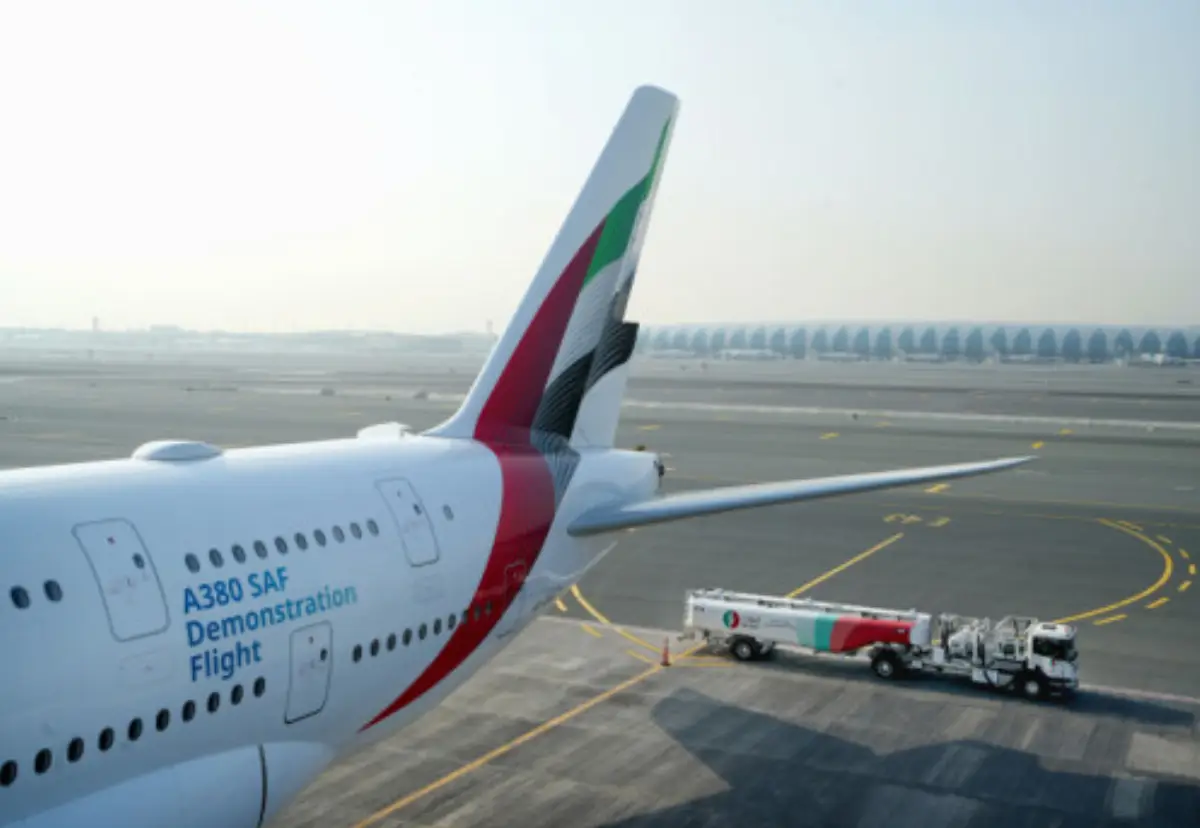
Emirates Group (4): sustainability for airline and dnata
Investments and initiatives, SAF, electric and hybrid vehicles

Sustainability
During 2024-25, the Group continued to invest and implement initiatives that help reduce its impact on the planet, increase engagement with communities, and develop and reward its people.
Emirates continues to seek opportunities to use Sustainable Aviation Fuel (SAF) where feasible across its network. During 2024-25, the airline took its first deliveries of SAF at London Heathrow and Singapore. Emirates also joined Germany’s Aviation Initiative for Renewable Energy, which promotes the development and use of renewable aviation fuel.
Tapping on funds earmarked for research in sustainable aviation solutions, Emirates partnered with the Aviation Impact Accelerator at the University of Cambridge, supporting their research in emissions reduction pathways. The airline launched a large-scale solar energy project at the Emirates Engineering Centre in Dubai to meet 37% of the centre’s power demand; signed up as strategic partner of the Dubai Reef project which focusses on marine conservation; joined the Move to -15oC global coalition, which aims to reduce energy consumption in the frozen food supply chain; and was the first airline to add donkey hides to its wildlife embargo list after the African Union banned the slaughter of donkeys.
Combining innovative upcycling with social impact, Emirates launched “Aircrafted Kids”, an initiative where seat fabric recovered from the airline’s retrofit programme were made into thousands of durable schoolbags and distributed through NGOs to disadvantaged children around the world to support their education. Emirates also donated 12,000 eyeshades to support teacher training initiatives in the UK for the blind and low vision community.
dnata expanded its fleet of electric and hybrid ground support equipment (GSE) at airports around the world this year, adding electric GPUs in Dubai, electric forklifts in Singapore, and electric tugs in São Paulo. dnata also trialled its first 100% electric catering truck in Prague. During the year, it launched dnata’s ‘Station of Tomorrow’ at Orlando International Airport, featuring a fully electric GSE fleet; and executed its first fully electric pushback operation in Australia.
For its non-electric vehicle fleet, dnata aims to use alternative fuel options to reduce emissions where feasible. In 2024-25, dnata transitioned to a biodiesel blend for all non-electric airside vehicles and GSEs in Dubai; began a trial with ExxonMobil on renewable diesel (R20) in Singapore; and began operating its heavy goods vehicles at London-Heathrow with 90% Hydrotreated Vegetable Oil (HVO).
See for details AVIONEWS 1, 2 and 3.
4) the end
AVIONEWS - World Aeronautical Press Agency